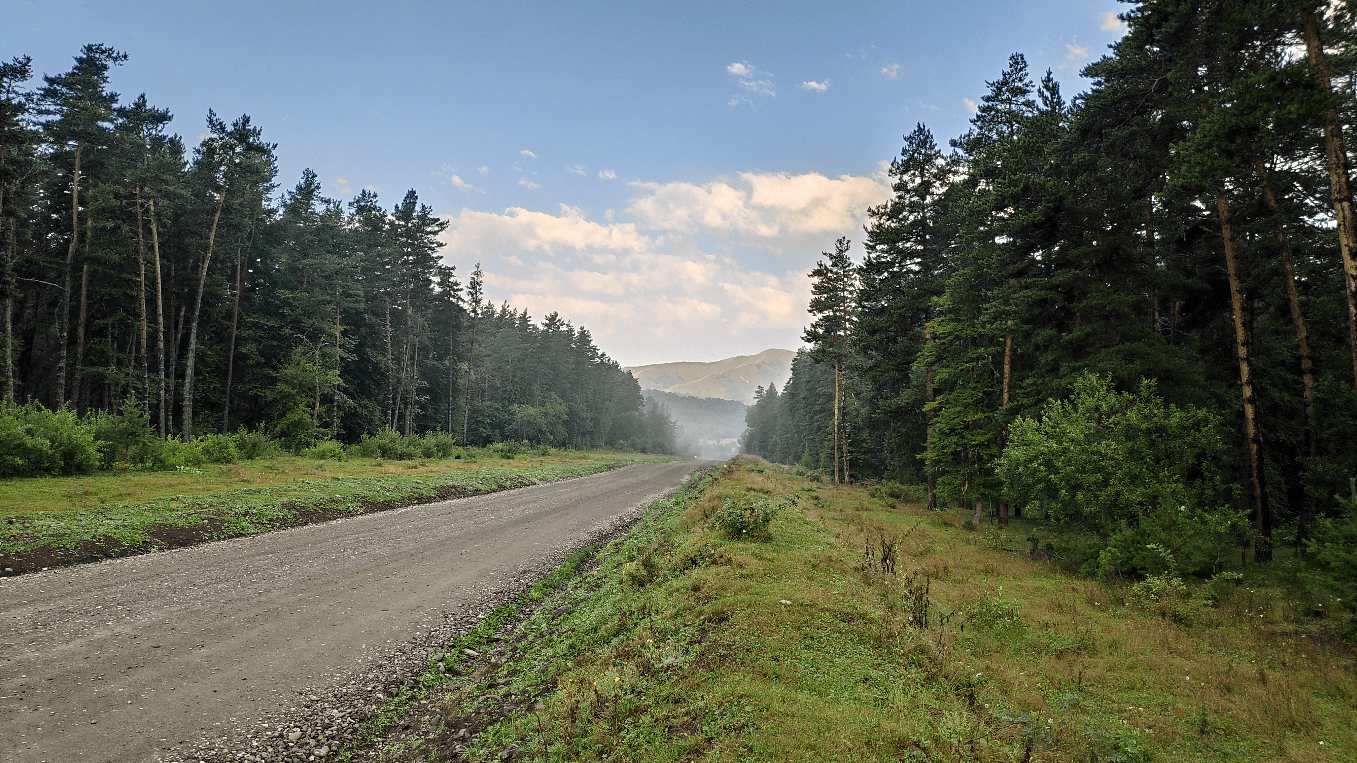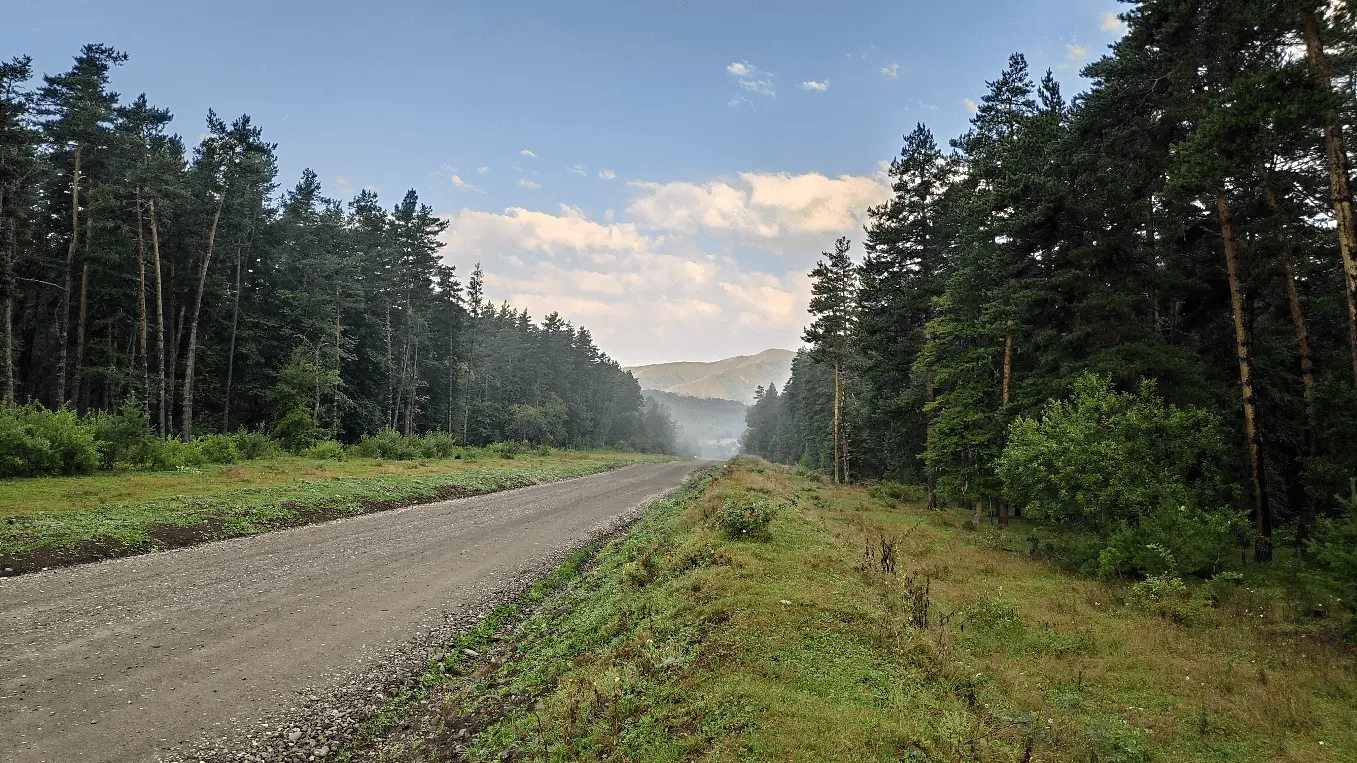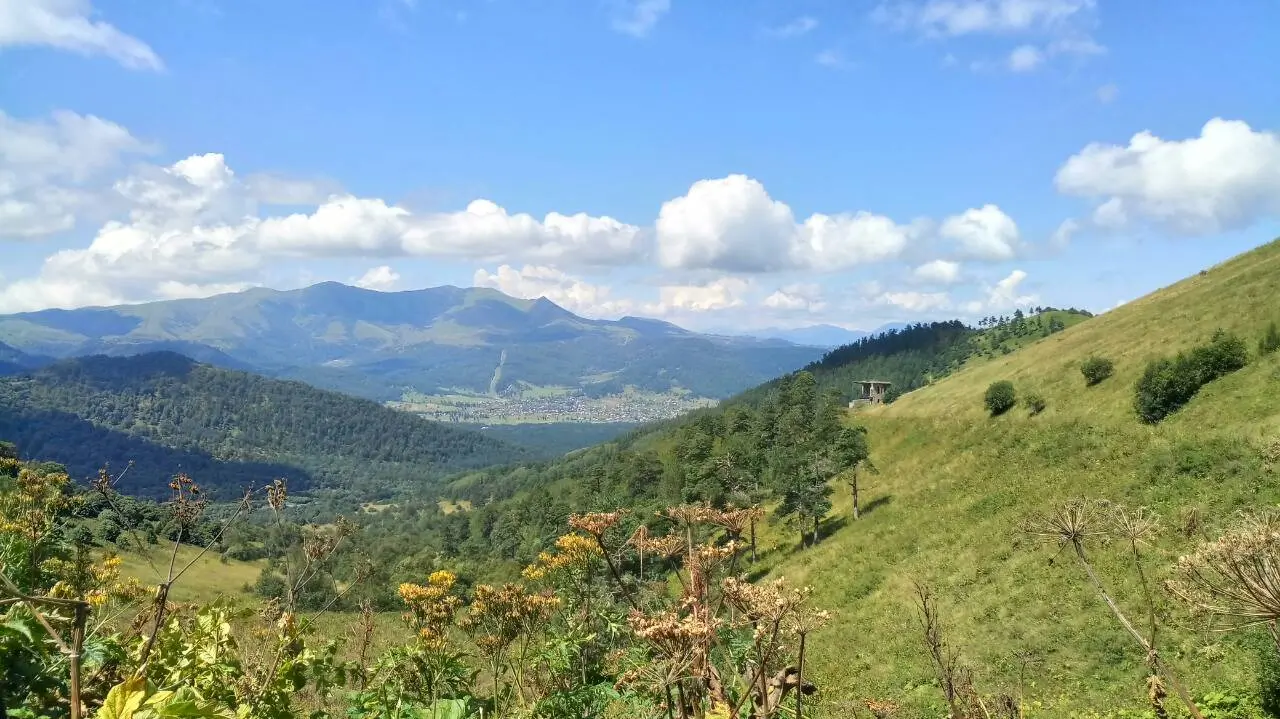My home is me!
He protects us, hiding from prying eyes, and at the same time betrays our essence. We're rushing home, we dream of a change of scenery or yearn within four walls. What our feelings about our own home say about ourselves?
Each of us understands, what is parental home: love here, suffer, laughing, hug each other, sometimes cry. Gather around the table, talking, look into each other's eyes. Until recently, even people were born and died here.
Having studied the past of the village of Tsikhisjvari and seeing the current picture, hurts the heart, that places with a fate of several decades are rapidly changing. For the last 25 years, the rate of extinction of the village was gaining unprecedented momentum. Luckily, things have changed for the better.
How have our feelings changed in the era, when you can live in two or three houses? Will we keep the parental home, or prefer a sterile modern apartment, where is the most important - bed, shower and wifi? The value of the parental home remains the same - anyway, emotional. House - this place, where we feel safe, this place, where everything is family related. The feeling of "I have a home" is close to the feeling of "I have a family". We are protected and given a sense of support by another: simple familiar things, native smells, dear memories... In this sense, the feeling of "I'm at home" always takes us to the parental home. It is very important - know, what is the place, where we can always return. parental home - the image of our "I". This is why we love our home the most. Every era leaves a mark on history, culture and architecture of any settlement. As time goes by, whole decades and centuries disappear into oblivion, but at the same time they continue to live in photographs and in the memory of people and building. The latter are the most impressive and mysterious echo of time. Abandoned houses in the countryside keep, along with their former luxury, the secrets of bygone days. Many of these secrets are consigned to oblivion and will remain sealed with seven seals. Most of the villagers are happy to equip their home, your home: are repairing, improve, adorn, embody their own ideas, trying to keep the parental home, which, as in the song for many, is a reliable berth. But there are also, who, for a number of reasons, abandoned their houses in the village. Settled in the city and believe that they do not need all this. Naturally, everyone has the right to decide what to do with the parental home, can sell, donate or restore. But no one should probably abandon the house to such a state, which can harm neighbors and the village as a whole. The impression of the beauty of the nature of these places is broken only by one thing - collapsed buildings. In summer, the village of Tsikhisjvari literally comes to life - people from this village come, their kids, grandchildren. Everybody clean their houses, street, process trees, bushes and flowers, however, no one will be able to cope with the abandoned houses in the neighborhood. Ragged houses with collapsed roofs, gaping holes instead of windows not only look unaesthetic, but also pose a danger. abandoned buildings, first of all, pose a danger to teenagers. In search of extreme, they do not always understand, what are the risks of such walks. Children are attracted to such buildings, who rarely adhere to fire safety regulations, but the leaky floors, rotten rafters can collapse at any moment. When entering the village, the first thing that catches your eye is the building of the club in the village of Tsikhisjvari, the club was no longer used for its intended purpose back in the 1990s, and the object began to be empty and overgrown with grass, and its walls began to fall apart. Getting into the center of the village, the office of the former state farm catches your eye, where is the school nearby , and this collapsed office is a direct threat to schoolchildren, further in a deplorable state is a bakery, and many other buildings, that obscure all the beauty and all that ambition , which the village can be proud of.

This type was probably not during the Second World War. But in the village, in addition to visitors, villagers live. And they live in such conditions as if during the war. Naturally, there are many abandoned land plots in the village of Tsikhisjvari, and abandoned houses. Their fate is different, more often bitter. But it does not mean, that they don't need to be taken care of. After all, fire-dangerous shoots grow in abandoned areas or, even worse, a natural disaster occurs. The villagers are trying to fix the situation, but they can't do more than the owner. What can villagers do?, for that, to call on the owners to take care of the land and the ruined houses? In fact, a lot - there is legislation , which obliges the owners of old and collapsed buildings to use land plots with buildings in accordance with their intended purpose in ways, which should not harm the environment, including the earth as a natural object, carry out land protection measures, forests, water bodies and other natural resources, including fire safety measures; comply with the requirements of urban planning regulations when using land plots, construction, environmental, sanitary and hygienic, fire and other regulations, standards, carry out construction on land, building reconstruction, structures in accordance with the requirements of the legislation on urban planning; prevent pollution, exhaustion, degradation, damage, destruction of lands and soils and other negative impact on lands and soils. Abandoned houses always pose a threat to neighbors, spoil the appearance of the street and become a real "headache" for all residents and guests, but for some reason not for the owners of these houses.

The village administration can take action, conduct an audit of unused buildings throughout the village, since uncleaned unfenced debris can be a danger to children and, of course, spoil the view of the street, and the village in general. The village administration can notify the owners of abandoned houses that measures are being taken to improve the site. Information about the owners of abandoned houses is available from the village administration. Naturally, the administration and neighbors cannot and do not have the right to demolish such buildings, without permission, because this house has a copyright holder. There are buildings, that spoil the appearance of the village, that have multiple owners, who can't get along. People live in the village and guests come, and if someone does not want or cannot clean up their area, then the neighbors and the village should not suffer. Residents of the village are concerned about the fate of abandoned properties, whose owners have left and no longer care about their condition. How to urge owners to take care of real estate, which violates the town planning plan of the settlement? Explain to them that such real estate not only spoils the architectural appearance of the settlement, but is a threat to the security of the village and makes it difficult to modernize the infrastructure of the village. In the meantime, the locals can only hope, that it will still be possible to get out of this chaos and live by the principle that you no longer have to be afraid of old collapsed houses. The salvific stage will be the dismantling of dilapidated buildings. Need to remember, that the responsibility of dangerous buildings always rests with the owner.
PS: Everyone please give their opinion, your thoughts on solving this global issue in relation to the village and people in the comments ...









